These clever and easy Gardening Hacks are so useful that using them can change the way you garden forever. We have the best ones for you!
Have a look at some amazing Gardening Hacks that will help you in a lot of ways, both in the home and yard.
Check out some space-saving genius hacks for small kitchens here
Best Gardening Hacks
1. Self-Watering Wine Bottle Planter
The terracotta stakes are fitted with a water-filled wine bottle stuck in the plant’s soil. As the terracotta absorbs the water, it will slowly leak into the soil and keep the plant’s roots moist.
Check out the best wine bottle uses in the garden here
2. Cinnamon Powder on Seedlings to Prevent Diseases
Cinnamon has some anti-fungal qualities and smells great as a bonus. Use it to prevent and stop diseases on seedlings. Find out more about it.
Check out our article on Cinnamon uses in the garden here
3. No Watering Can? No Problem!
This super simple hack of an old milk jug is perfect for a new gardener. Upcycle your old plastic milk jug by heating a needle and poking holes in the lid so water can flow through it freely. Check out the tutorial here.
Have a look at DIY Watering Can ideas here
4. Use Coffee Grounds to Keep Pests Away
Use coffee grounds to keep pests like ants, snails, and slugs away. It also benefits acid-loving plants as an effective fertilizer.
Check out the coffee ground uses in the garden here
5. Use the Citrus Peel to Start Seeds
Poke a hole in the bottom of the peel for drainage, fill it with potting soil, sow the seed and sprinkle some water. When the seedling is ready for transplant, plant it directly in a garden or a container with the peel.
The peel will decompose and nourish the young plant as it grows. Learn more about it.
Have a look at our article on Citrus Peel uses in the garden here
6. Use Eggshell to Prevent Pests
Coarsely crumbled eggshells form an effective barrier against soft-bodied garden pests like snails and slugs that eat your plants. They do not risk through these sharp and uncomfortably jagged shells.
To do this, encircle roughly crushed layers of eggshells around the plants sensitive to such pests. Check out some brilliant eggshell uses in the garden here.
Learn how to prevent slugs in garden here
8. DIY Self-Watering Hack
If you’re going on a vacation for a few days and don’t have a way to keep your indoor plants watered, keep them alive with a clever gardening hack.
Roll up some paper towels as tight as possible without tearing them, dunk the ends in a glass of water, and lay the remaining across the soil so that each plant is at least a few inches away. Get the details here.
Check out Self-Watering container gardening ideas here
8. Use Coffee Filters in Flower Pots
Next time you’re repotting a plant, use a coffee filter to ease your work. Lining the pot keeps the drainage holes in the bottom free from clogging up — and soil from sneaking out after watering. Find out the details here.
Here’s how you can use coffee in your garden
9. Use Herbs to Deter Mosquitoes!
Make a mosquito control pot by grouping these plants to prevent mosquitos and flies. Don’t miss reading about this scientifically proven mosquito repellent plant here!
10. Broken Pot Plant Marker
Plant label is a quick and easy way to recycle broken planters. To make it, bat the pot into desired pieces. Take the potsherds and write the names of the plants with a permanent marker on them, or you can use a sharp object to carve names to give a rustic look.
You can also decorate them with colors. When done, bury them half into the soil.
Check out some brilliant ways to use broken pots in the garden here!
11. Kill Weeds Using Vinegar
Vinegar acts as an active pest repellent and benefits your garden in different ways. To get rid of those pesky plants in your garden that pop up again & again, use vinegar.
Here are the best weeds you can eat
12. Hang Pallet on a Wall to Store Garden Tools
Shipping pallets can be found for free at many hardware stores, furniture stores, or even construction sites.
Using a recycled pallet, recycled bow rake heads, and a few carpentry tools, you can easily carve one to wrangle all your garden tools in one place. Get the tutorial here.
13. Use Hydrogen Peroxide to Help Plants
Hydrogen peroxide can save your plants from root rot and many fungal diseases. It also helps to sprout seeds for new plantings.
Use a 3% hydrogen peroxide solution once a day and spritz the seed every time you re-moisten. You can also use a mixture of 1 part hydrogen peroxide to 32 parts water to improve your plants’ root system.
Check out some amazing hydrogen peroxide in the garden here
14. Use Honey to Propagate Cuttings
Honey contains enzymes that promote root growth, and you can use it as a ‘Rooting Hormone.’ Honey helps plant cuttings in setting roots, and they propagate easily. It also saves them from fungal problems.
Read about how you can use honey to propagate cuttings here
15. DIY Self-Sharpening Garden Tool Holder
Make a tool holder from a terracotta pot and add abrasive sand and mineral oil to that. It will not only hold your garden tools as you thrust them in but the sand and mineral oil mixed in it also clean and sharpen them at the same time. Read more of this ingenious idea on One Good Thing.
16. Use Diapers to Improve the Moisture-Retaining Ability
Quirky idea but useful. Lay diapers with the absorbent sides up, and they will retain moisture for a long time.
This gardening hack is useful for hanging baskets, shallow pots, and especially if you live in a really warm climate. If you want to know more about this idea, click here.
Here’s how you can use Diapers for gardening
17. Epsom Salt When Transplanting
Use Epsom salt when you transplant your plants to save them from transplant shock. When planting seedlings or new plants, dig a hole and place about 1 tablespoon of Epsom salt in the bottom of the hole and cover with a thin layer of dirt, place the plant in the hole and finish planting.
Check out Epsom Salt uses in the garden here
18. Use Cooking Water to Fertilize Plants
When you boil or steam some vegetables on the stovetop, don’t pour the water down the drain. Once the water has cooled, pour this vegetable water into your plants to fertilize them instead of wasting it. You can also do the same with your boiled egg water.
Learn how to use pasta water for plants here
19. Pinching, Deadheading, and Pruning
Pinch the tips of young plants for bushier growth. Deadhead spent flowers from your plants to promote more blooms and remove top shoots and emerging flowers of your herbs to help them have a healthy growth and prevent bolting.
Also, most of the new gardeners avoid pruning their plants, but it is important too and helps in rejuvenating the growth of plants.
Learn all about deadheading roses the right way here
20. Smother the Weeds
If weeds are surfacing in your garden, do this: Before you put a layer of mulch on your planting beds, cover the garden bed with newspapers and then drop a layer of mulch to smother the weeds. Read more about this ingenious idea on A garden for the house.
21. Check Soil pH at Home
Check the soil pH at your home. It’s true you are not going to find out the exact value from this test, but it will tell you whether your soil is acidic, neutral, or alkaline.
Here’s how you can test the pH of garden soil at home
22. A Ladder Plant Stand to Create More Space
Get a ladder plant stand like this to put your plants on it and to create more space. It can be a good addition to a limited space container garden.
Check out ladder plant stand ideas here
23. Use Vodka For Germinating Seeds
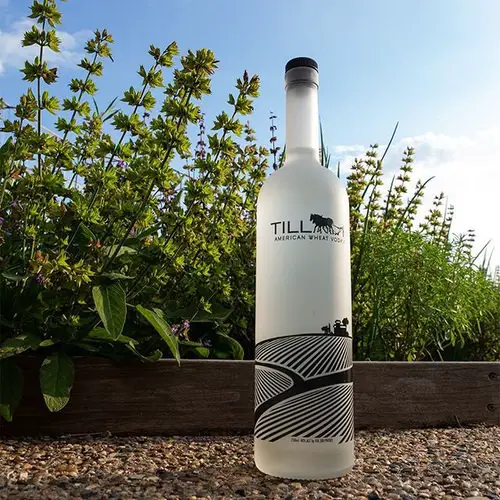
Simply dip the cut ends in diluted vodka-water solution, it will act as a fungicide and also promote the callusing process.
Here’s all you need to know about using vodka to propagate plants
24. Try Vaseline
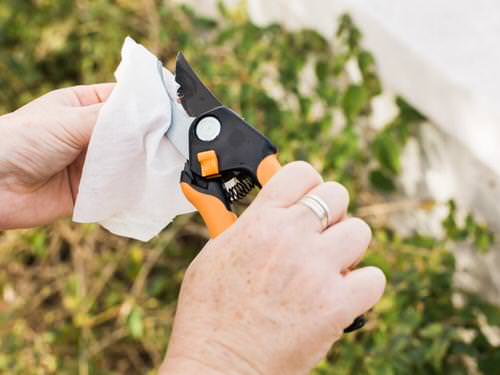
Keep your gardening tools in top-notch condition by using Vaseline. Just apply a layer of petroleum jelly on blades and edges after working with tools to protect them from rust.
Check out vaseline uses in the garden here
25. Seed Starting Pots from Old Newspapers
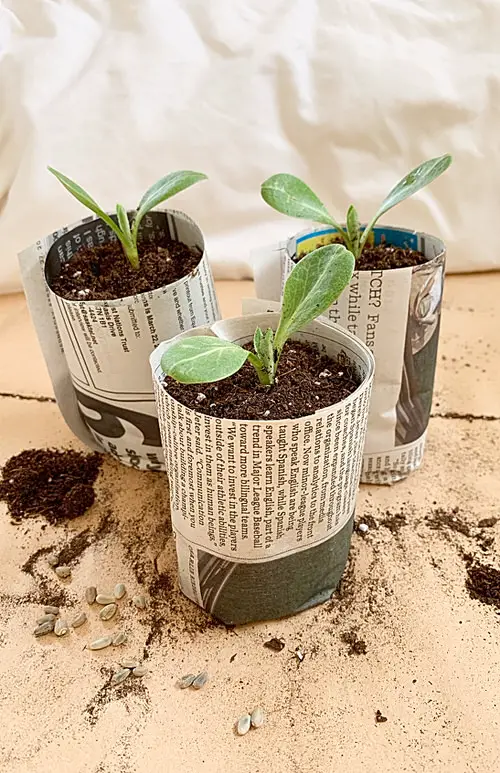
Take 2-3 pages of old newspaper and make a 4-sheet stack. Cut the newspaper into three parts and roll each one to form a round ‘cup.’ Fold the edges at the bottom for closing the end. Your biodegradable seedling pot is ready!
26. Muffin Tin for Spacing Out Seeds
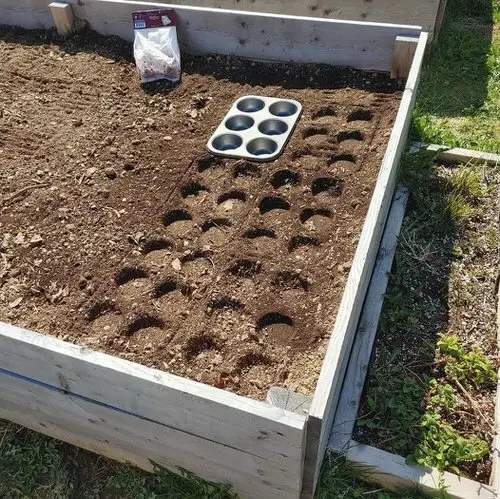
Use muffin tins for marking holes in the soil at an equal distance–simply press the tin in the garden soil for making an impression. You will have equally spaced-out holes for planting seedlings.
27. Fork For Harvesting Herbs

If plucking individual herb leaves irritates you, then use a fork to ease this task. Push the fork at the bottom of the stem and pull it towards the upper end. The fresh leaves will be trapped in the fork, which you can simply drop in the bowl.
Here are the best tips and tricks on harvesting herbs
28. Anti-Pest Hack with Orange Peels
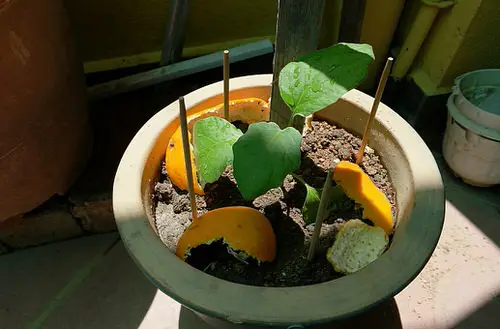
Rather than using harmful chemical pesticides, repel nasty pests by placing citrus-scented orange peels in the pots. The chemical is known as d-Limonene in the orange peels, which helps in deterring ants and aphids.


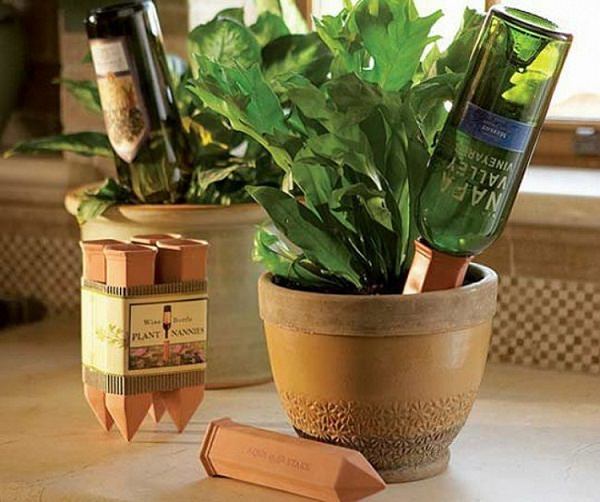
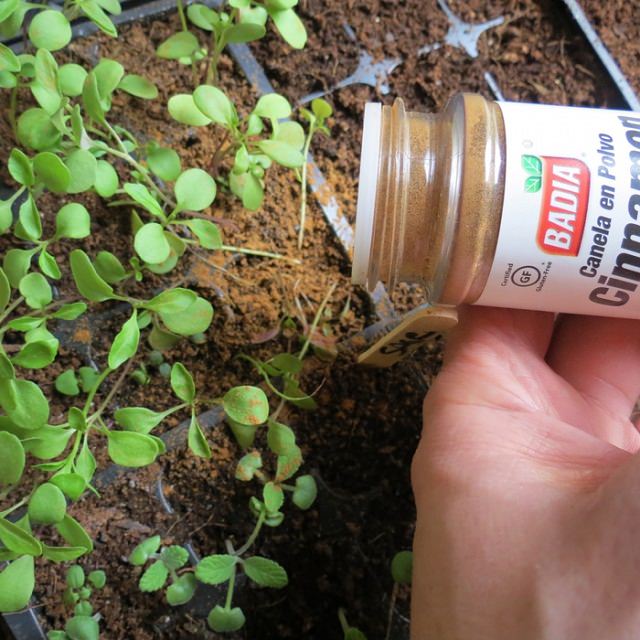
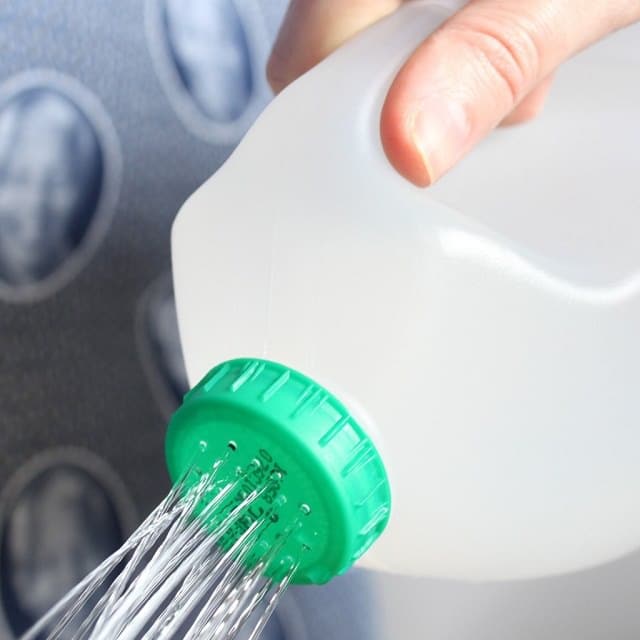
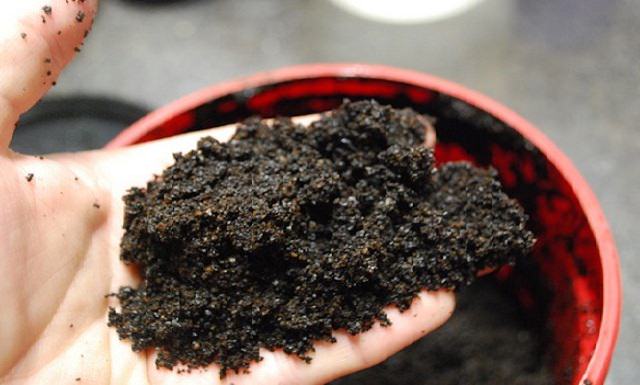
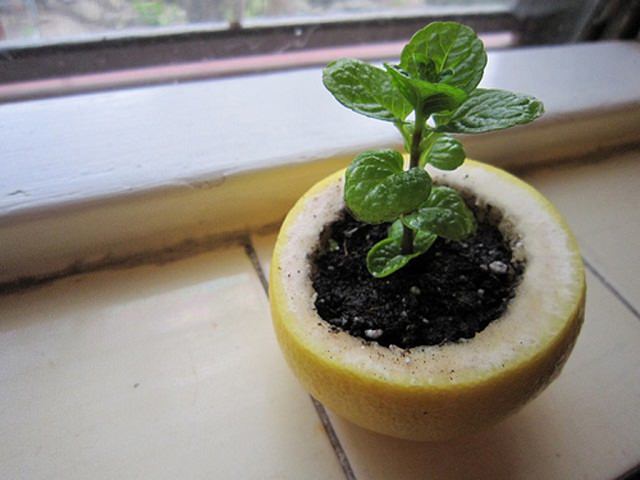
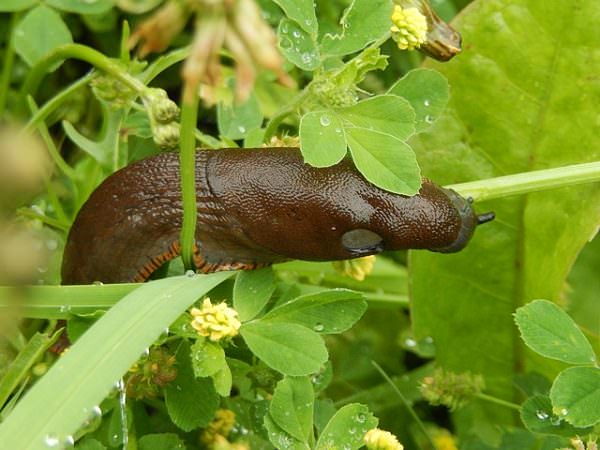

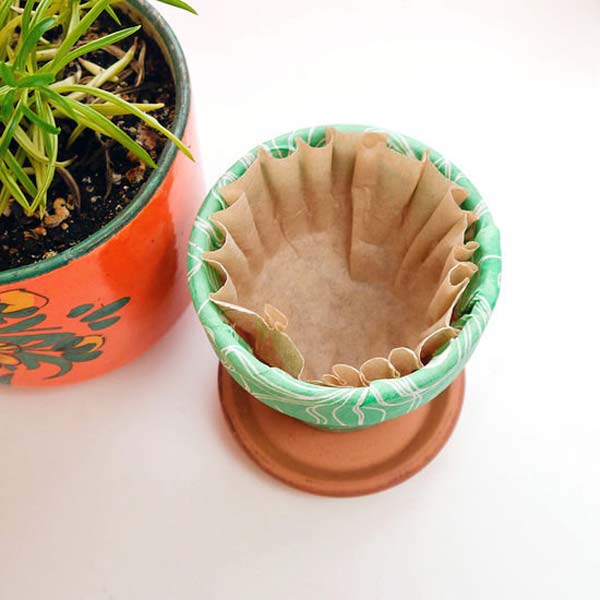
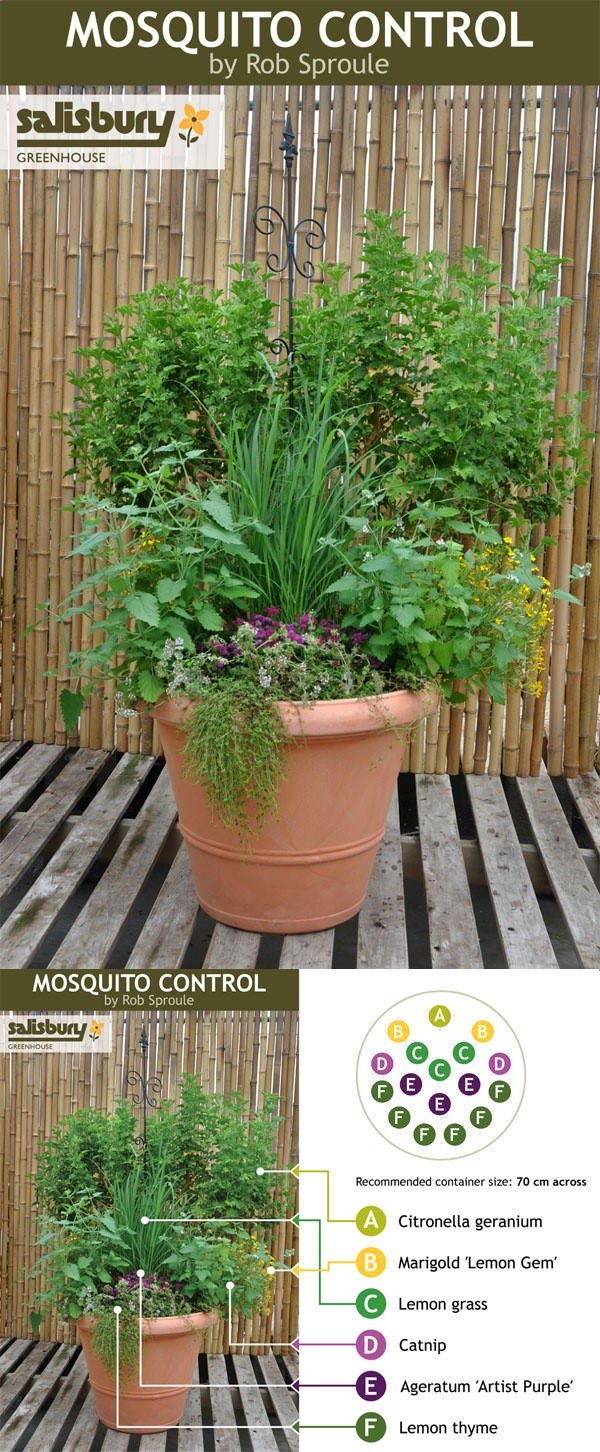
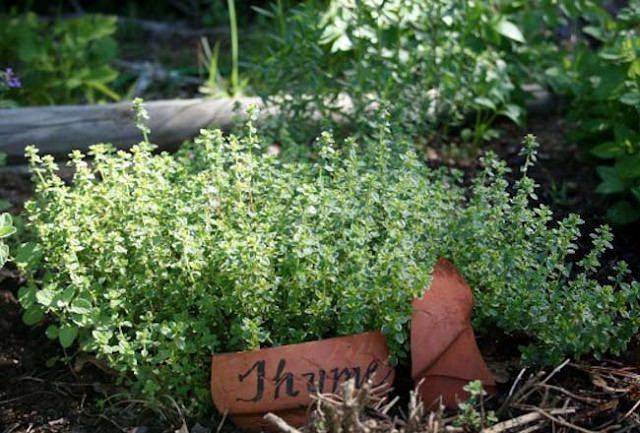
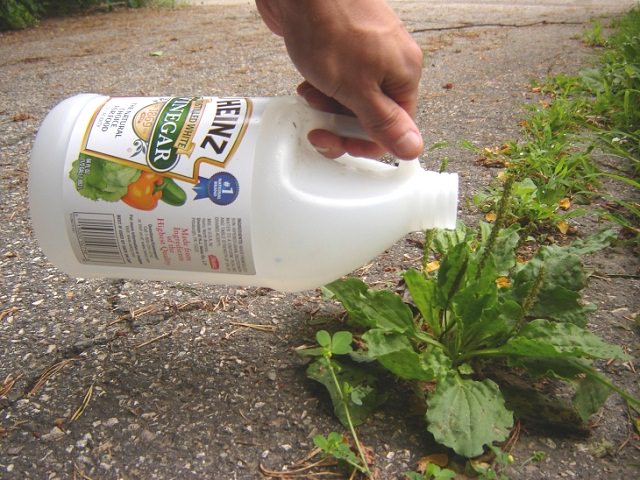
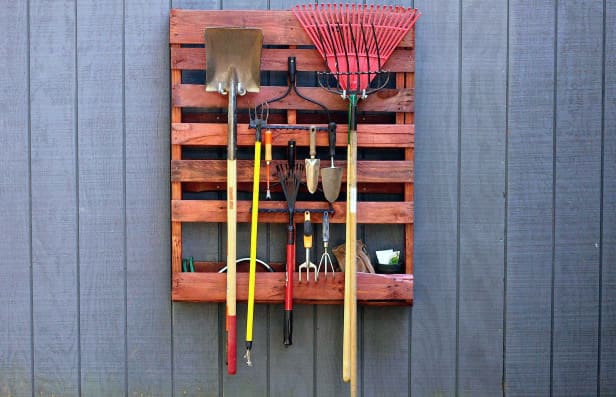
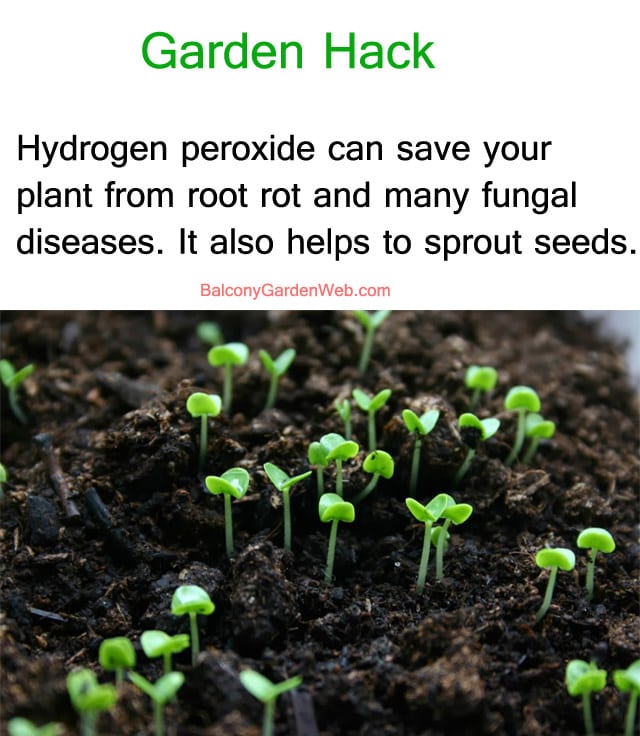
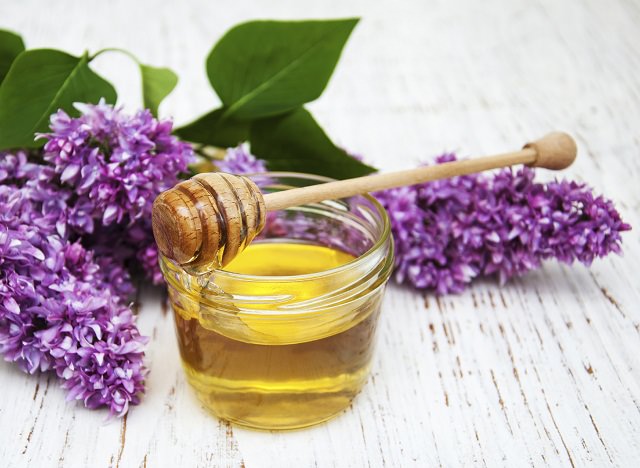
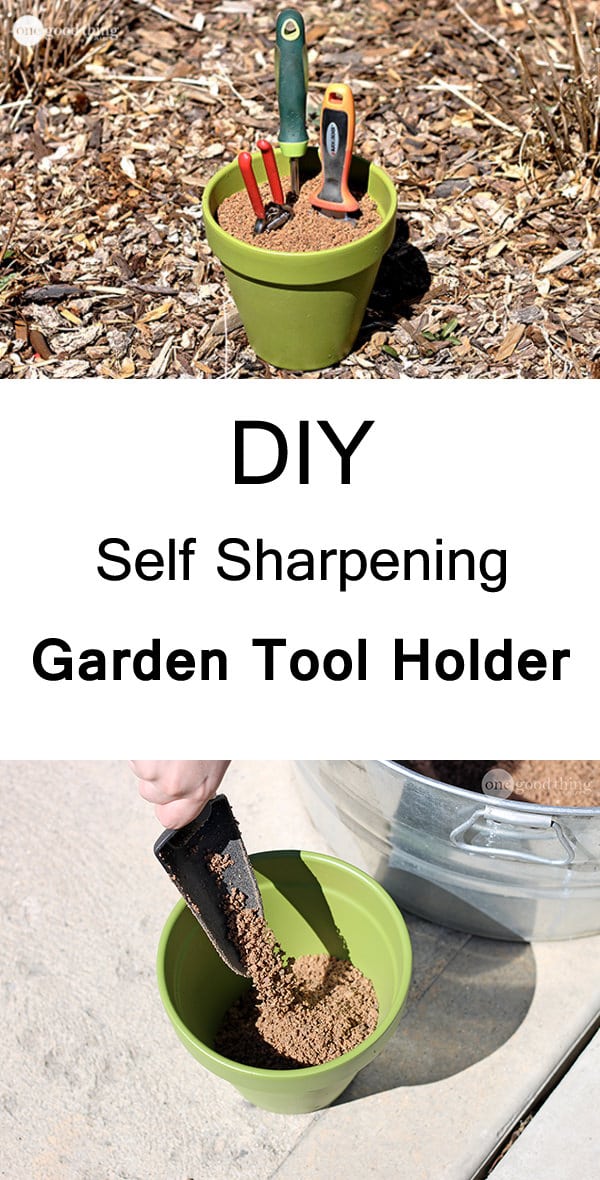
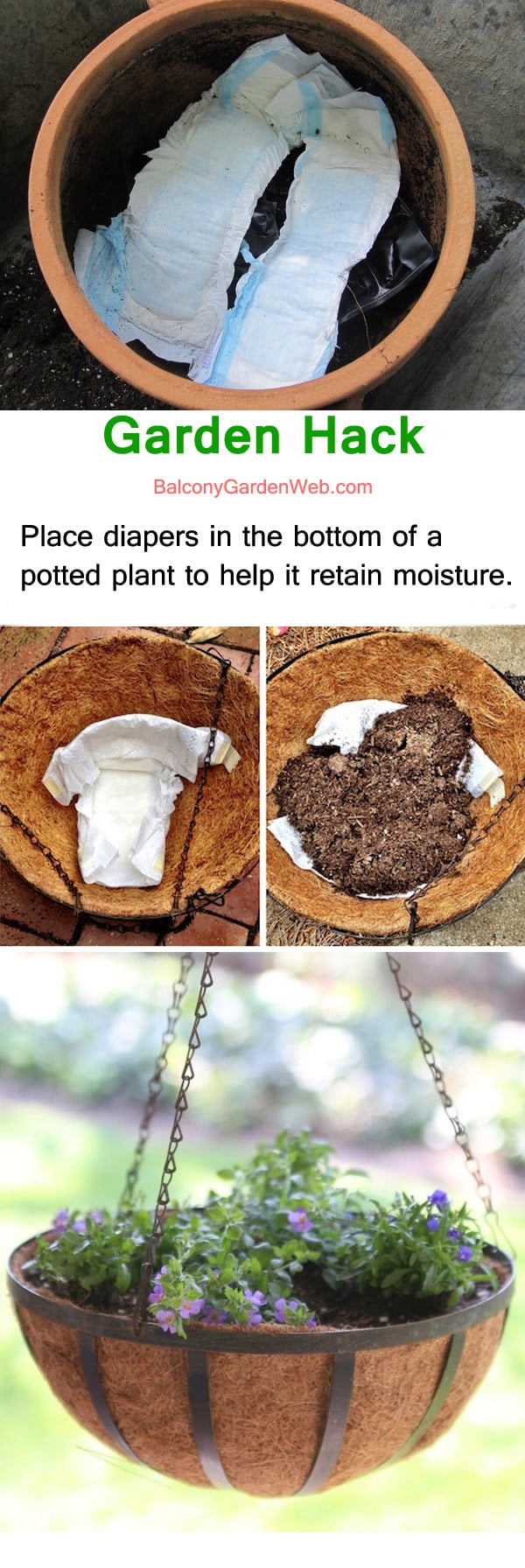
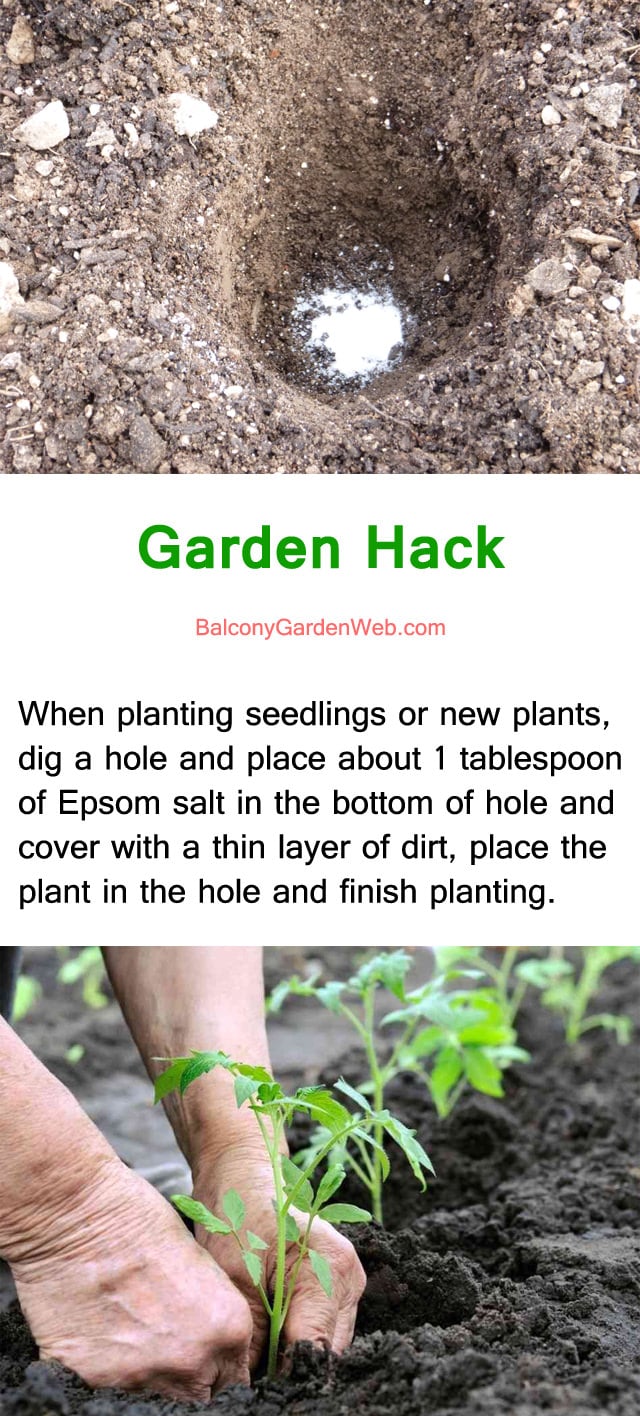
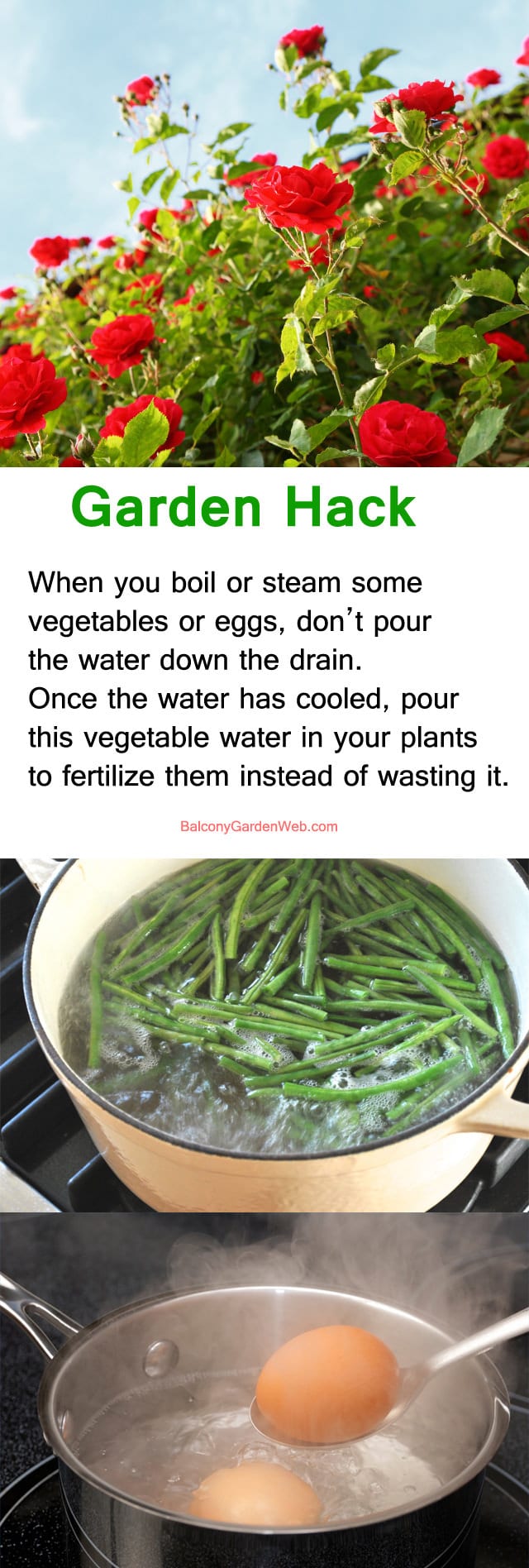
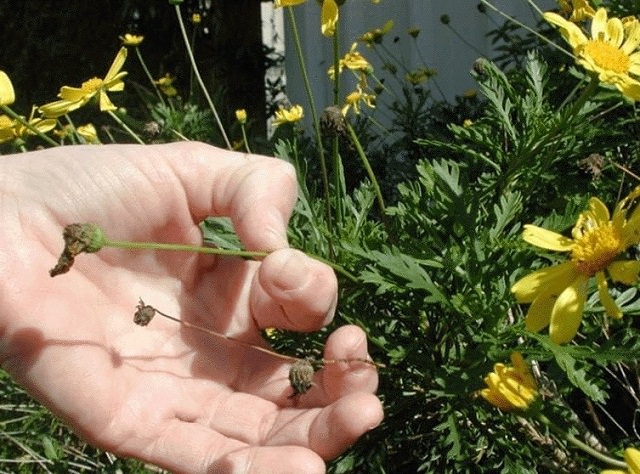
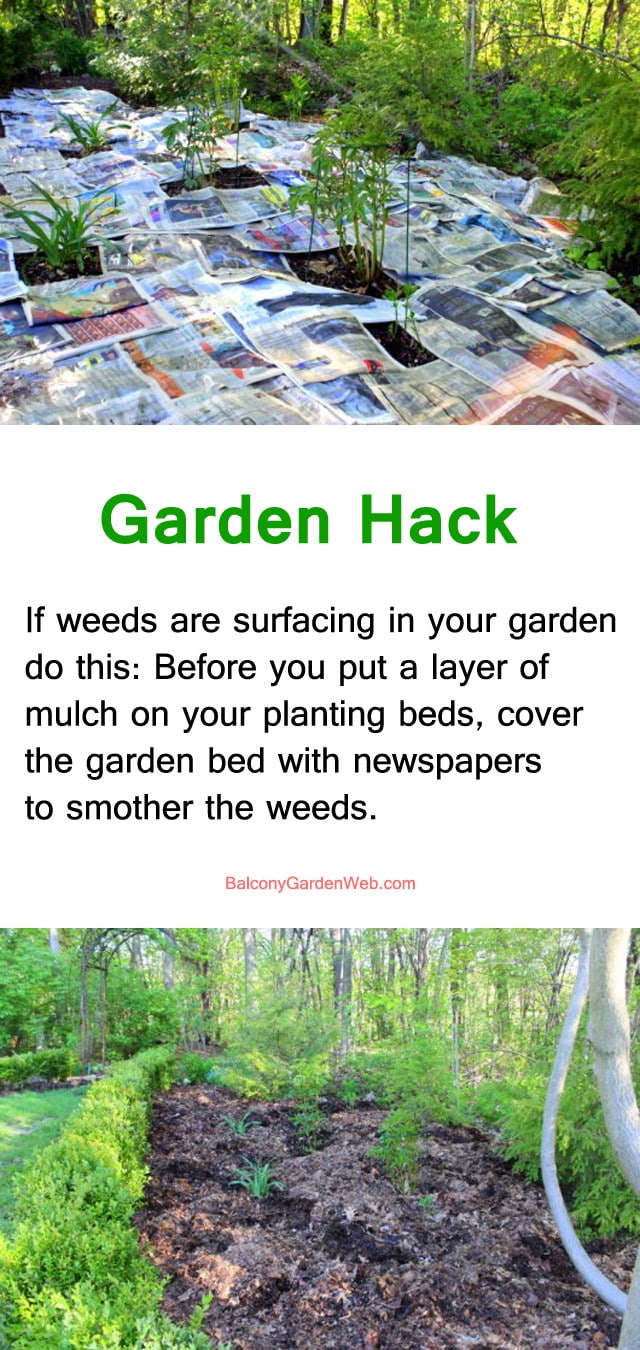
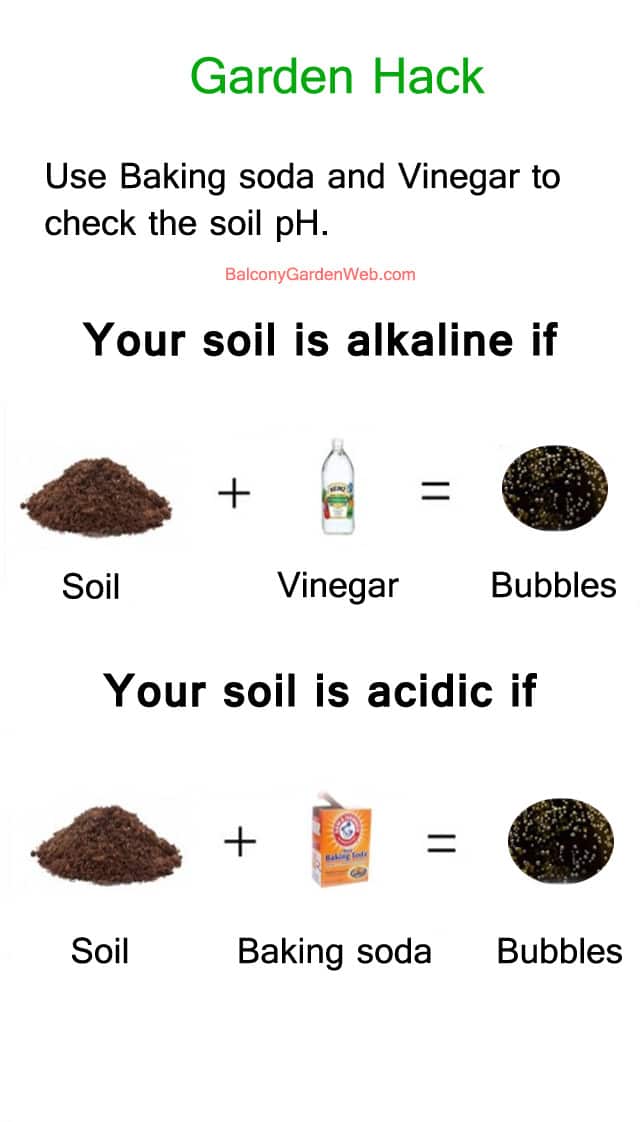
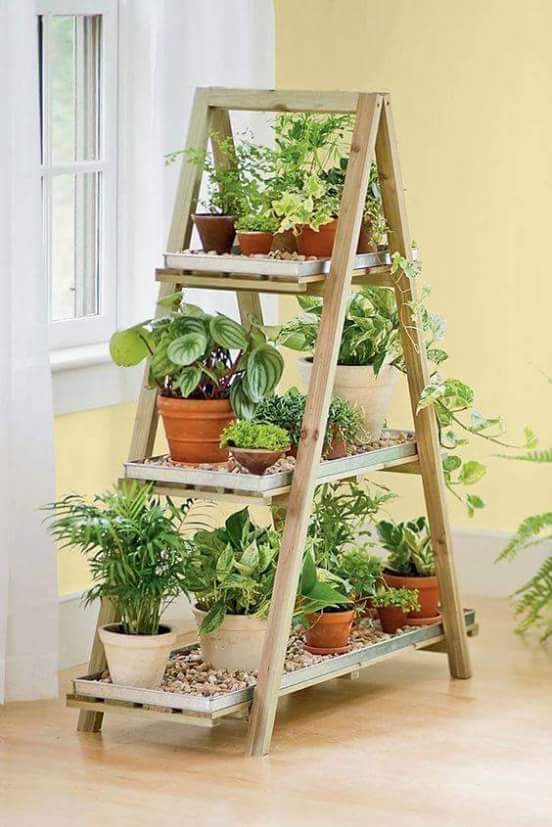

These are some great ideas except for using diapers. There are way too many diapers in the landfills as it is and as they don’t decompose these should not be used – as gardeners we like to think that we are re-using items or using ones that eventually decompose.
Agreed. There are also some pretty toxic chemicals in disposable diapers. I wouldn’t be ok with them against a child’s skin and I sure don’t want them in my garden soil.
You can use lightly used diapers you are going to throw anyway, and you can remove all the plastic parts, and just use the absorbent parts.
I use a small piece of newspaper in bottom of potted plants instead of buying coffee filters.
Cardboard is much thicker and lasts longer than newspaper for a weed barrier.
I use a standard cheap small step ladder and place recycled plants of wood on each tier (usually some cutting is required). I think this is a really good “green” way for using a ladder plant stand. I will definitely start using the tip for fertilising my plants with vegetable stock from dinner. I’m betting this will increase growth and plant yields.
Amazingly simple tips that I can’t wait to try in my garden. I’ll be sure to pass this information on to my fellow gardeners. Thanks
Saya juga sudah tidak sabar untuk segera menerapkan trik di atas.
Awesome gardening tips…thanks for sharing
just awesome…something new to me!! thanks guys and girls for putting this up!!
Thank you
Very useful tips
Take shipping peanuts used in boxes to pack and mail something. Place these in bottom of pot serves as venting from bottom as well as quick fix for loosening r dirt out the bottom.
This is very much important indeed, i have learned many things. Please send me your daily/weekly/monthly newsletters.
Best regards,
Another tip is to grind up cleaned and dried egg shells and to incorporate into the soil where you have tomatoes growing. This helps prevent calcium deficiency.
If you are in the tropics/subtropics, you can use old coconut shells as hanging planters!
Wonderful tips!! I tried the one with the vinegar and I`m happy I saved my garden so easy from these bad weeds!
with the citrus fruit hack it just rotted and died what do we do/what do you recommend or what did we do wrong
Another tip is dissolve an antacid (1 antacid with 1 gallon of water) in your sprayer and spray your tomatoes and the soil where you have tomatoes or other plants growing. This helps prevent calcium deficiency.
Great tips. I love reading plant tip articles to try and find new ideas or better way. Coffee filters in bottom of plant pot is good but I use panty hose. I go to thrift store and can always find some 1980s panty hose still in packaging for 25 cents or so. Then I cut them to fit drainage hole as needed and the pair of panty hose lasts a really long time. I got that idea from my husband who was putting peat moss in panty hose to add to aquarium and i decided to use that instead of coffee filters and have ever since
Basic tips but really badly written. Is the writer from a another country? Surely you can get someone who writes with proper grammar.
Thats just rude. Who cares where they are from. Are you perfect? Guess you think so anyway.
Such an unnecessary and rude thing to say. Someone trying to be helpful and share the love. Glad I dont know you.
OH MY GOSH, ANOTHER GRAMMAR OFFICER ON PATROL! THERE IS ALWAYS ONE JUST WAITING TO ATTACK AND YES I’M AWARE MY CAPS LOCK IS ON AND THAT’S OKAY.
Another tip to plants seeds is to place seeds in pea shell and then sow in the soil. I really liked the idea of killing the insects and pest with vinegar. I am totally against the insecticides and pesticides. Moreover, you can enhance the beauty of your garden by planting colorful flower plants with various colored lights on them. This way your garden will look heavenly. I have tried it.
Cinnamon is also useful for helping keep cats away. Or, well, my cat at least – maybe he just really doesn’t like cinnamon.
Loved the gardening tips.
Thank you,
Fran
A lot of garden hacks and tips in this article. Love reading this and it’s easy to apply. Thank you for sharing these useful tips.
What a great myriad of wonderful solutions for our plant pets! Thank you!
Great tips but I would love tips on keeping squirrels away from my plantings. I’ve tried Irish Spring, hot pepper, screens… but they gnaw through everything. Any ideas?
Thank you so much for the tips. My Mom used the coffee grounds and egg shells for her plants. Her plants were amazing.
Great and ethical job from tomcyberghost on gmail
As much as I prefer using natural methods of deterring or killing pests (as we should) I find that often such things just don’t work. And I tried using multiple methods at once, if the 1st or 2nd didn’t work either. (I tried chili pepper spray, garlic alone or with dish washing liquid spray, orange peels, crushed egg shells, coffee etc.) They work sometimes and to some degree. I did not switch to chemical methods but I did lose my plants. But yes, they are worth a try: I never give up.
LOVE THESE TIP’S, MOST I’VE NEVER KNOWN BEFORE. THANK YOU FOR SHARING!
i use used coffee filters in bottom of plant pots and it stops the ants making a home in my pots… also if using vege water for watering indoor plants, i found pasta and potato water can cause a surface mold to grow due to starch
Don’t forget to save your foods scraps like banana, orange & other peels. It’s so beneficial, I throw my mine in the ground a couple of weeks before planting 🌱👍